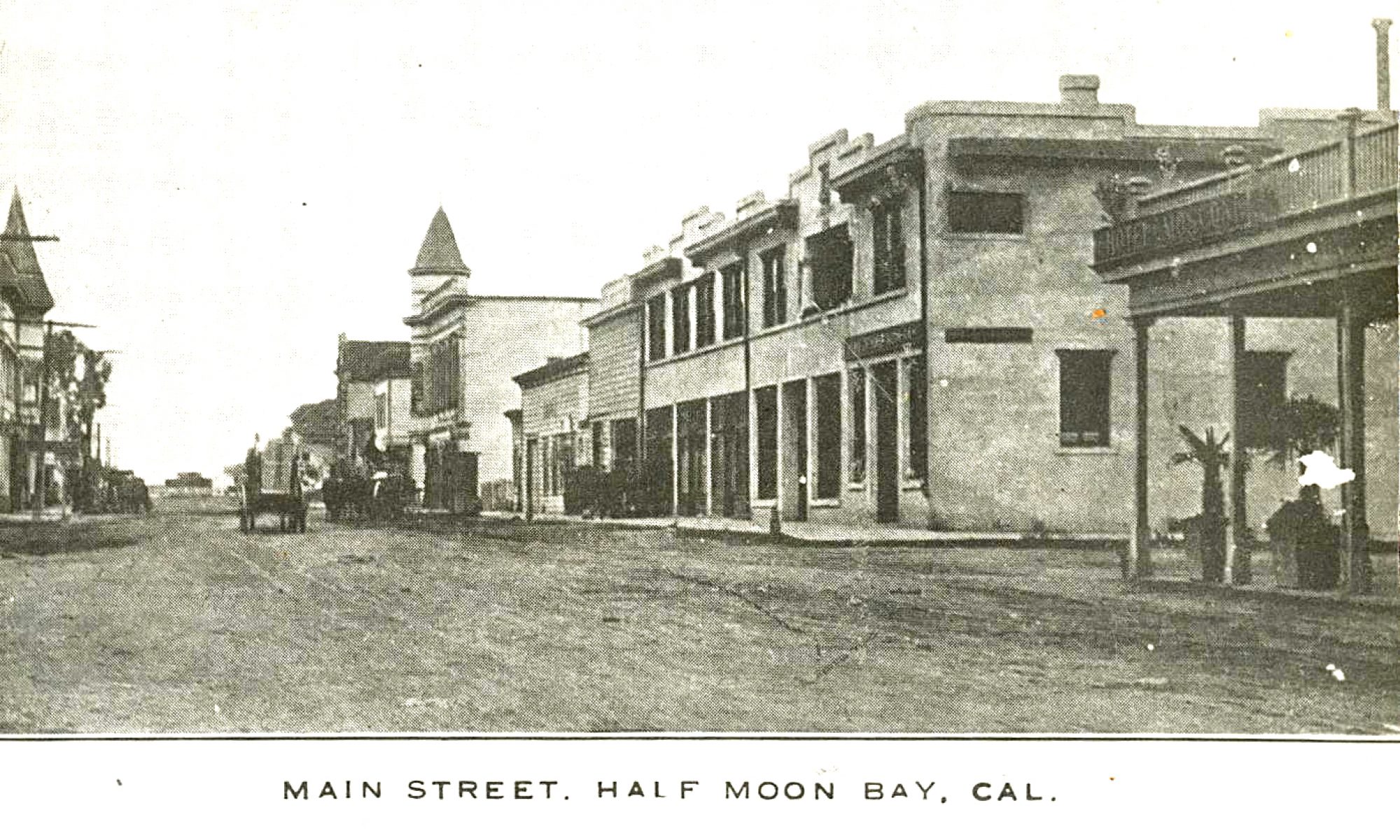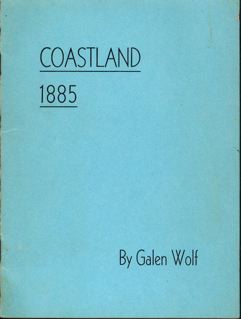“It is June and the year is 1885.
“The train you boarded at Third and Townsend Streets, San Francisco, has been running southerly, through meadows and marshes for nearly an hour. Now it is slowing. A few houses pass the window. The brakes grind.
“The conductor flings open the door and his shout runs the length of the car: ‘San Mateo!’ You are on your way to the coastland.
“As you step down, a few surprising vehicles meet the eye. Hitched to a well-chewed pole are dog-carts, jaunting carts, tallyho and tandem. The horses are bobbed roached and the harness silver trimmed. They tell of the playland of the millionaires, D.O. Mills, Flood, Crocker, Parrot and Wm. Ralston.
“Beyond these polished but effete conveyances looms a great Concord coach, utilitarian as a merchantman in a harbor of yachts. It is the ship of the West, tremendously traditional, almost mystic. And it will carry you to the land behind the mountains.
“Its bulging body is Indian red and striped with gold. A landscape is painted on scrolled panels on either door. Leather straps support it in place of springs, and it will rock and roll like a true ship in a sea.
“Today four horses draw it. Often there are six, and it has carried the unbelievable number of twenty eight passengers. They ride in three layers, a top-heavy shortcake of seating. In the coach itself, on the roof with legs dangling, and on a seat like a hatch on top.
“Bob Rawles sits on the high perch of the driver. The passengers gather about.
“Here is Loren Coburn of the Pescadero lands, crackers and cheese in his pockets. R.I. Knapp, short and bearded, back from his plow works in San Jose. A tall man, bearded like a patriarch, swings up. You recognize James Hatch.
“The vigorous form of Chas. Borden, pipe smoking , piles in. You ask about the redwood canyon he has acquired form the Lanes and about the progress of the mill.
“A bareheaded man with pale face and ample moustache collects the fare; Ferdinand Levy. It is one dollar to Half Moon, two dollars and a half to Pescadero.
“Rawles gathers the lines, cracks his whip. The coach rolls out of town, along a single street bordering the railroad tracks. It crosses the meandering red-rock roadway of Camino Real.
“Here stands a sign post. Some joker has shot a piece from it. Truncated, it read, “Moonbay and scadero”. Beyond, the green-grey hills rise.
…to be continued…
Photo: courtesy San Mateo County History Museum. Visit the museum at the historic Redwood City Courthouse in Redwood City.


